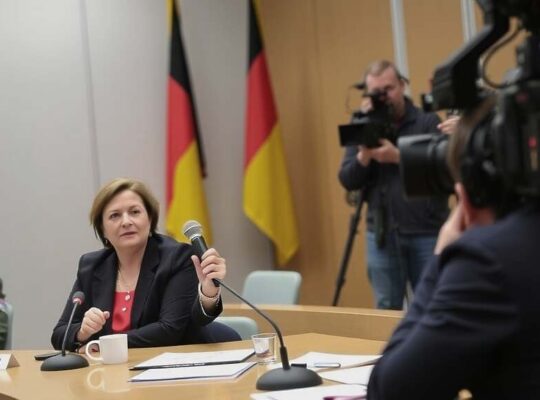Concerns are mounting within Germany regarding a growing number of Ukrainian war refugees appearing to possess Hungarian citizenship, raising questions about potential welfare fraud and straining the nation’s resources. The Federal Office for Migration and Refugees (Bamf) has reported 1,136 cases this year alone where suspicion of Hungarian nationality has arisen among those seeking protection, according to information shared with “Welt am Sonntag”.
The influx of these suspected dual nationals is not new. Over the past four weeks, 141 such cases have been flagged from Bavaria, Baden-Württemberg and North Rhine-Westphalia, contributing to a total of 9,640 cases reported to Bamf since May 2023. While 568 individuals have been confirmed as Hungarian citizens, 5,825 cases definitively confirm solely Ukrainian nationality.
The phenomenon is largely attributed to individuals originating from the border region between Ukraine and Hungary, many holding both Ukrainian and Hungarian passports. As EU citizens, they are afforded freedom of movement and the right to work within the Union, however, they are not eligible for temporary protection status currently offered to Ukrainian refugees and face restrictions regarding welfare entitlements.
The motivation behind these declarations remains unclear, prompting speculation about potential abuse of the German welfare system. Thuringia’s Ministry of Migration has acknowledged the possibility of individuals strategically utilizing their Hungarian passport to access “Bürgergeld” (basic income support), a benefit not readily available to those considered solely Ukrainian refugees under the Mass Influx Directive. The generous provisions of this directive provide immediate access which is driving the interest.
Bamf’s role involves forwarding these suspicion cases to Hungarian and Ukrainian authorities for verification. If Hungarian citizenship is confirmed, the refugees are ineligible for war refugee status and are legally obligated to leave Germany if they cannot support themselves. This situation underscores a complex and increasingly contentious issue within the ongoing refugee crisis, prompting critical inquiries into the efficacy of existing protocols and the potential for exploitation within EU citizenship frameworks. The implications for Germany’s social safety net and future refugee integration policies are now under growing scrutiny.












